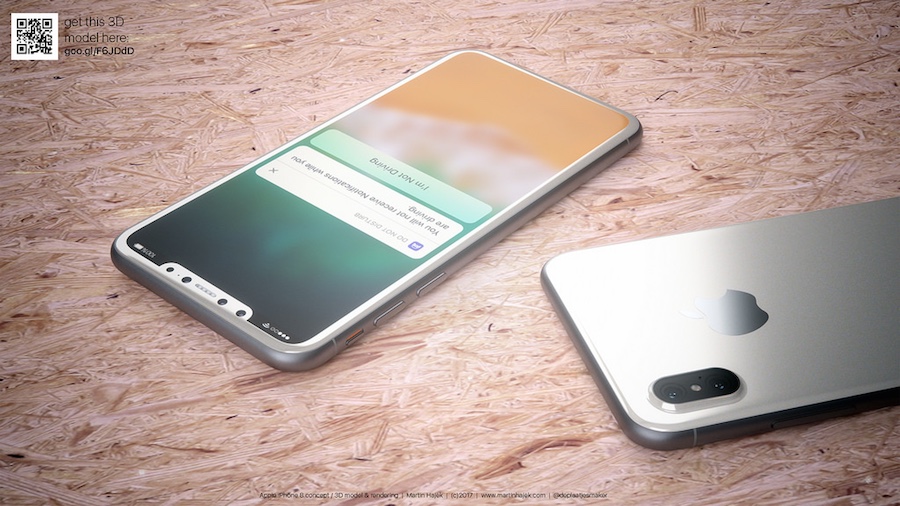The iPhone 8 is expected to be the main driving force for a “supercycle” of iPhone sales not seen since the iPhone 6 was launched in 2016, many people say. But not all of them are in agreement, and some voices warn that the iPhone 8 might not be able to set new sales records. According to new projections, the iPhone 8’s first year will match the iPhone 6’s first year.
The prediction comes from a Deutsche Bank note to investors seen by Business Insider.
“We believe investors will be disappointed by iPhone growth in FY-18 and FY-19,” the Deutsche analysts said. They think the market is overly optimistic about iPhone 8 sales, and that it’s ignoring a few factors that may have an adverse impact on iPhone sales, including saturation in mature markets, elongating refresh cycles, declining share and increased competition in China and a growing secondary market.
The iPhone 6 was an exception because “everything went right” at the time, and Apple’s advantages won’t be repeated.
“That cycle saw peak iPhone shipments of 231M in FY-15, a shipment level the company has not been able to repeat,” the analysts said.
“Given most smartphones are now refreshed on a roughly 2.7-year cycle, we think FY-18 should be measured against FY-15,” they added. “This cycle and our installed base estimates suggest Apple could ship about 230M iPhones in FY-18. However, Street expectations are modeling shipments of 244M units, implying an additional 13M iPhones shipments beyond refresh.”
Comparatively, analysts who support the idea of the iPhone 8 supercycle say there are plenty of iPhone users who have not upgraded in years, making them ripe for an iPhone 8 upgrade.
We’ll have to wait and see who is right. But what these analysts don’t seem to take into account right now is Apple’s ability to mass produce the iPhone 8 in high enough numbers to meet demand. The iPhone 8 will be significantly delayed, rumors say, and only a limited number of units will be available at launch. If Apple doesn’t fix the yield issues it’s currently facing, there not be any sort of supercycle this year, no matter how many iPhone users would be willing to upgrade.








